For the first time in the charity's history, this year WFN is awarding over £1 million pounds of Continuation Funding.
Thanks to your support, we are responding to the increasingly urgent need for nature conservation by channelling £1,060,200 in Continuation Funding to 15 Whitley Award alumni who are poised to scale-up successful work. Their projects will benefit over 623,411 people across 236,496km2 of the Global South, focussing on landscape-level conservation, policy and flagship species from fynbos plants to the spectacled bear.
£340,000 will specifically support four community-led, nature-based solutions that are jointly addressing biodiversity loss and climate change. As the global pandemic and recent COP26 have shown, we must tackle the environmental funding gap and take immediate action to safeguard humanity’s future, which requires restored landscapes, thriving wildlife, and stable climate systems. It’s why WFN is working hard to support grassroots leaders with scalable solutions now, when they need it most.
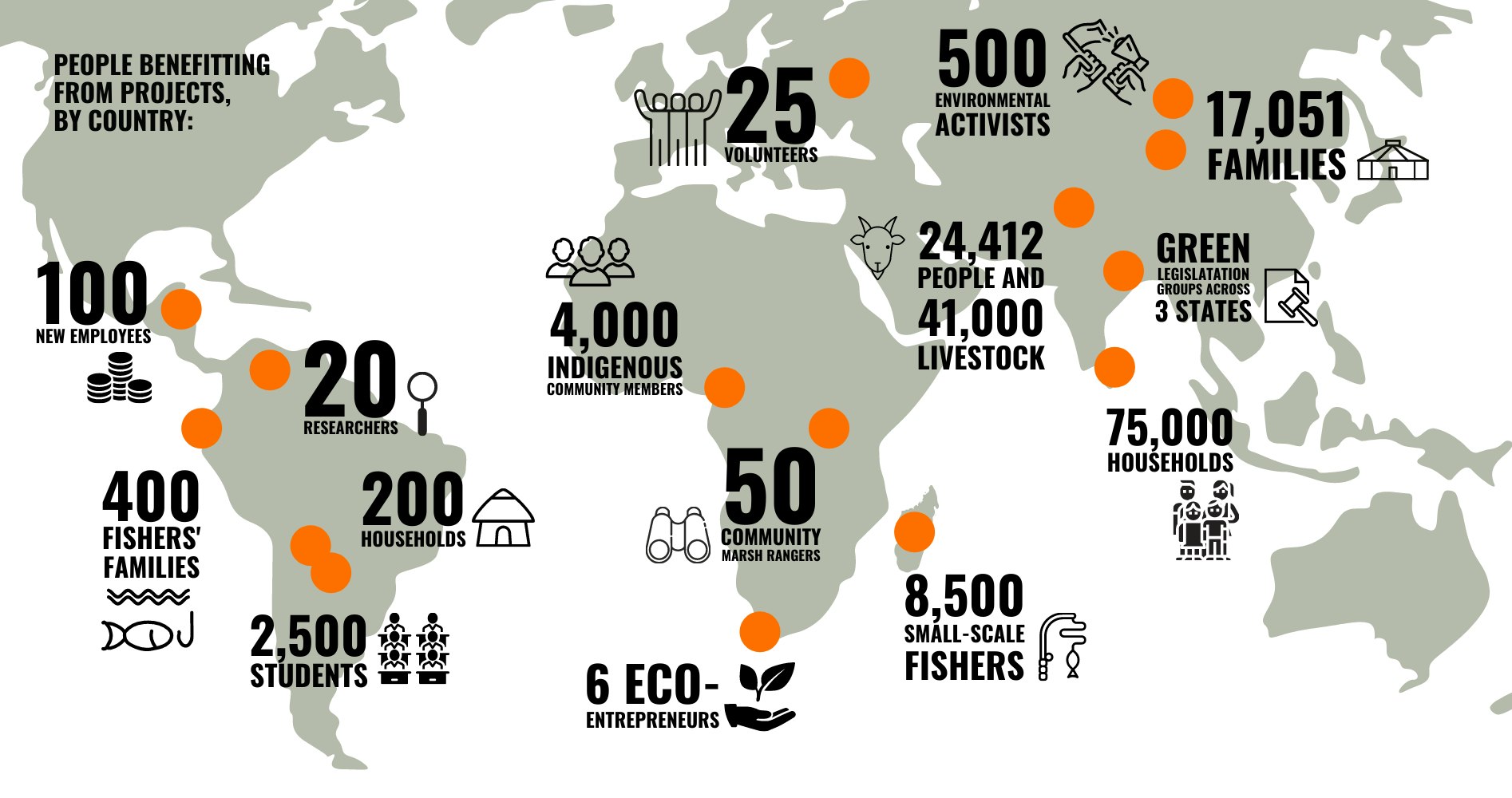

We’d like to extend a heartfelt thank you to all those donors who have made this milestone for the charity possible. Once you’ve met this year’s recipients, please consider whether you, too, could support them: by making a donation to WFN, or simply sharing their stories.
MEET THE WINNERS:
Ximena Velez Liendo (2017 Whitley Award)
Nature-Based Solution: £100,000 over two years
Bear Necessities: Making Space for Communities and Carnivores in Bolivia
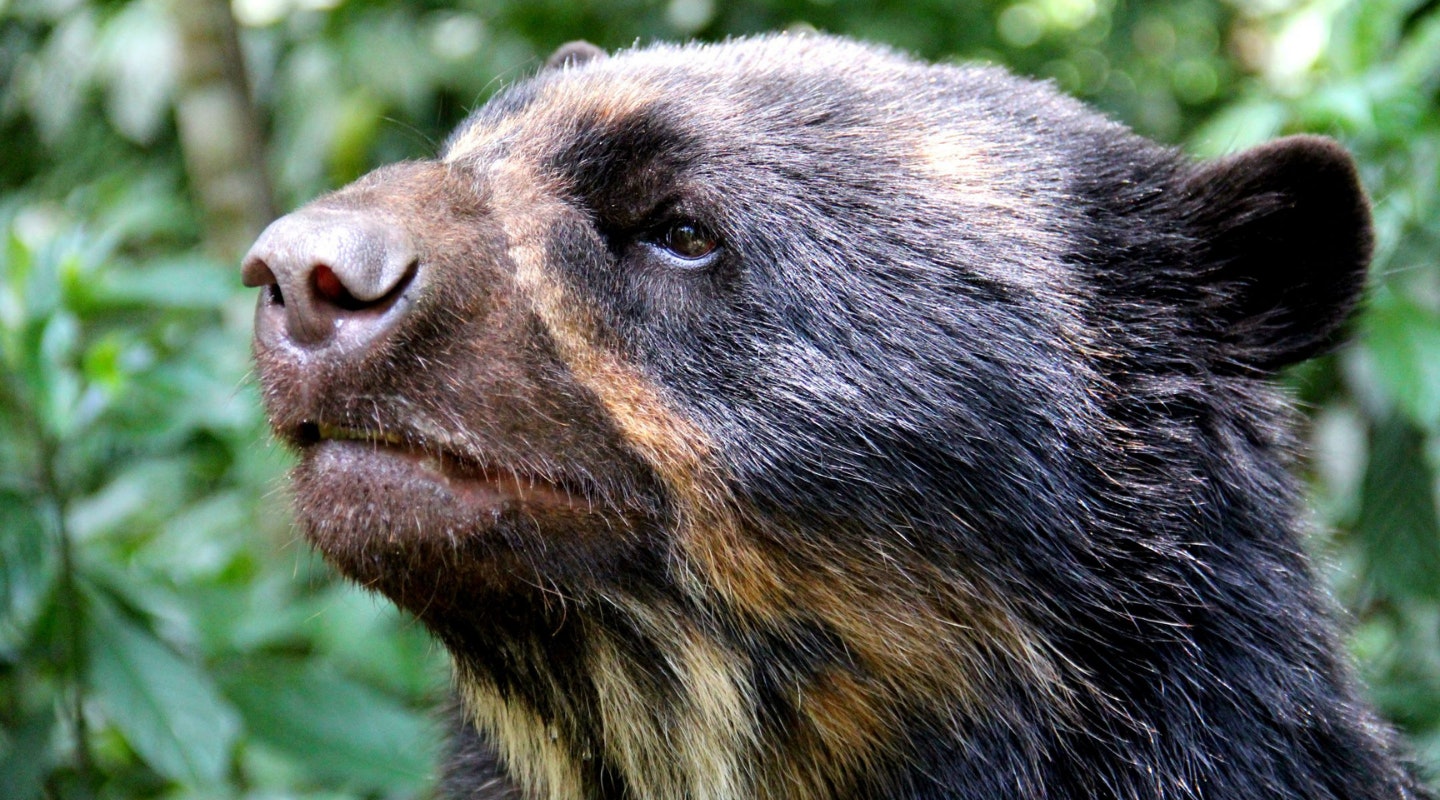
The inter-Andean dry forest is a Critically Endangered ecosystem. The 6% that remains still holds astonishing biodiversity, including the spectacled bear, and is home to some of the most economically vulnerable communities in Bolivia. Currently, increasing levels of cattle ranching in the region are driving human-carnivore conflict, as well as degrading forests, eroding soil and causing the release of carbon. Ranching also offers a bad return on investment for communities, requiring 20 times more land, water and resource in this landscape than in the lowlands.
Ximena Velez Liendo’s nature-based solution will reduce the number of cattle in the region by 15%. She and the NGO, PROMETA, will work with communities to replace ranching with nature-positive livelihoods such as beekeeping that keep carbon locked up, and develop viable markets for products to ensure these honey enterprises are successful. Ximena will also conduct population assessments of key species in the region, including puma, the Critically Endangered Bolivian chinchilla rat and the spectacled bear, of which there are only 25 local individuals left, to further inform conservation action. Together, she and community members will create a Productive Protected Landscape (PPL) – a management framework that respects traditional land-use while integrating biodiversity conservation, nature-positive economic activity and ecosystem restoration.
This is a replicable, ecologically-sound, and socially-just model. By placing farmers in a central role for conservation, as the solution rather than a problem, Ximena’s approach will benefit both people and planet.
Bohdan Prots (2007 Whitley Award)
Nature-Based Solution: £70,000 over two years
Rewilding the Radioactively Contaminated Chernobyl Exclusion Zone
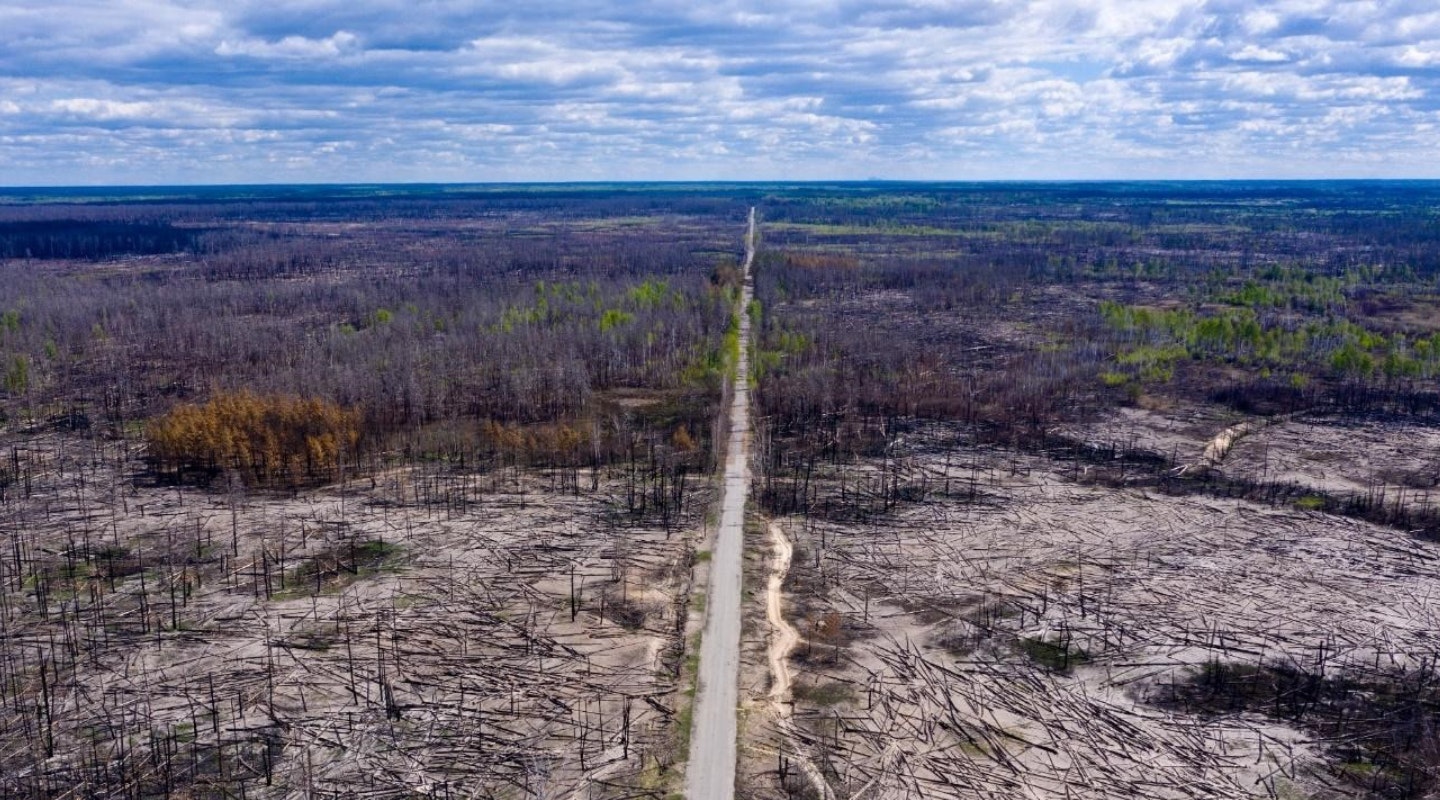
It’s been 35 years since the worst nuclear accident in human history. Over that time, the once post-apocalyptic Chernobyl Exclusion Zone (CEZ) has transformed into thriving forests, wetlands and peat bogs, the agent of this change: nature. What is now a Biosphere Reserve covers 2,600km2 of northern Ukraine. A rewilding process has allowed mixed woodland including black alder, oak and white willow to replace monoculture plantations, and freshwater to flow back into areas once drained for farmland. Even keystone species have returned including wolf, Przewalski’s horse, brown bear and lynx.
However, this flourishing landscape is at risk from wildfires exacerbated by climate change. Increasingly dry land conditions and a decreasing groundwater table caused catastrophic wildfires in 2020 that burned 20% of the CEZ. This threatens to spread the radioactive pollution that is currently being drawn down effectively, as well as releasing carbon, devastating wildlife populations and impoverishing neighboring communities who rely on sustainable timber use for fuel.
Bohdan Prots and the Danube-Carpathian Programme will accelerate what nature has started in order to counter this harmful trend, employing cost-effective rewilding solutions across the CEZ. They will increase forest coverage by 20%, restore 2,500ha of wetlands and establish two Ramsar Sites around the Pripyat River. Both wildlife and people will play a part in maintaining these replenished environments; Bohdan will help reintroduce beavers to further stimulate the rewilding of wetlands while communities, activists and civil society will be trained in wildfire prevention.
Jargal Jamsranjav (2004 Whitley Award)
Nature-Based Solution: £70,000 over two years
Community-Led Climate Change Mitigation in Mongolia’s Eastern Khangai Mountains
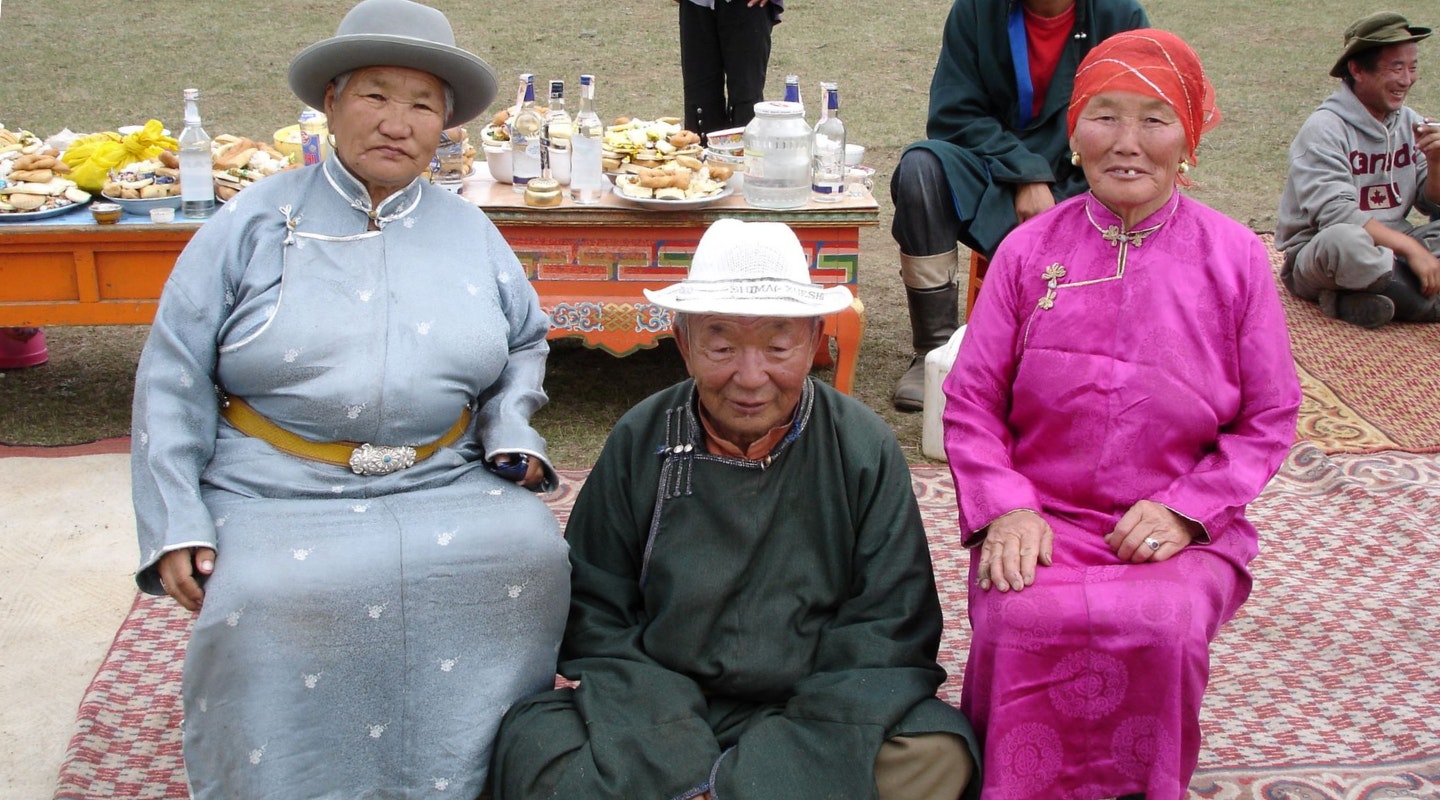
In Mongolia, the eastern Khangai mountain slopes host cool, coniferous Taiga and sub-taiga forests home to species such as musk deer, red deer, moose and wolf as well as globally endangered birds including the swan goose and Saker falcon. Indeed, over a third of the country’s birds are found here, as well as nomadic communities reliant on intact ecosystems and the resources they provide. While half of the forest is protected by the Orkhon Valley National Park – a UNESCO World Heritage Site – the remaining 50% is in urgent need of conservation.
Threats to the forest range from illegal logging to fires and outbreaks of pests, as well as unsustainable livestock grazing that suppresses natural regeneration. Jargal Jamsranjav will develop a sustainable management plan including pest warning systems, fire prevention and forest restoration, for approval by government and implementation by 40 community conservation groups. As the first person to apply the concept of community-based wildlife monitoring in Mongolia, Jargal is well placed to lead these efforts. She and her NGO, the Initiative for Conservation and Sustainable Development, will also establish a model agroforestry enterprise to improve livelihoods that don’t degrade nature. Through local conservation action Jargal is ensuring this landscape can keep serving people and planet, sequestering 2.6 million tonnes of CO2 per year.
Nicole Auil Gomez (2005 Whitley Award)
Nature-Based Solution: £100,000 over two years
Sweet Enough Already: Saving the Maya Forest Corridor from Sugarcane Plantations in Belize

The Maya Forest is the largest of the five remaining contiguous forests in Mesoamerica, spanning Belize, Guatemala and Mexico. The Maya Forest Corridor is the last connection between important northern and southern areas, but huge swathes are being converted into agricultural plantations by large-scale sugarcane companies. If not protected, the entire forest is estimated to be lost within 12 years.
Nicole Auil Gomez and the Wildlife Conservation Society are part of a coalition that is coordinating conservation action. Focusing on a critical property that has just been purchased and placed in trust for the people and government of Belize, Nicole will develop a collaborative management plan among stakeholders. She will prevent further degradation of this landscape from agricultural encroachment as well as poaching, timber harvesting and fire, as well as assessing the scope for reforestation along the corridor.
This project will protect broadleaf forest, freshwater, pine savannah and savannah ecosystems, home to wildlife including the Critically Endangered Central American river turtle, jaguar, and Baird’s tapir. Nicole will also collaborate with communities to develop green livelihoods and keep 1.9-2.9 million metric tons of CO2 equivalent from being released into the atmosphere.
Vatosoa Rakotondrazafy (2019 Whitley Award)
£70,000 over two years
The Blue Agora of Madagascar: Channelling Support to Locally Managed Marine Areas
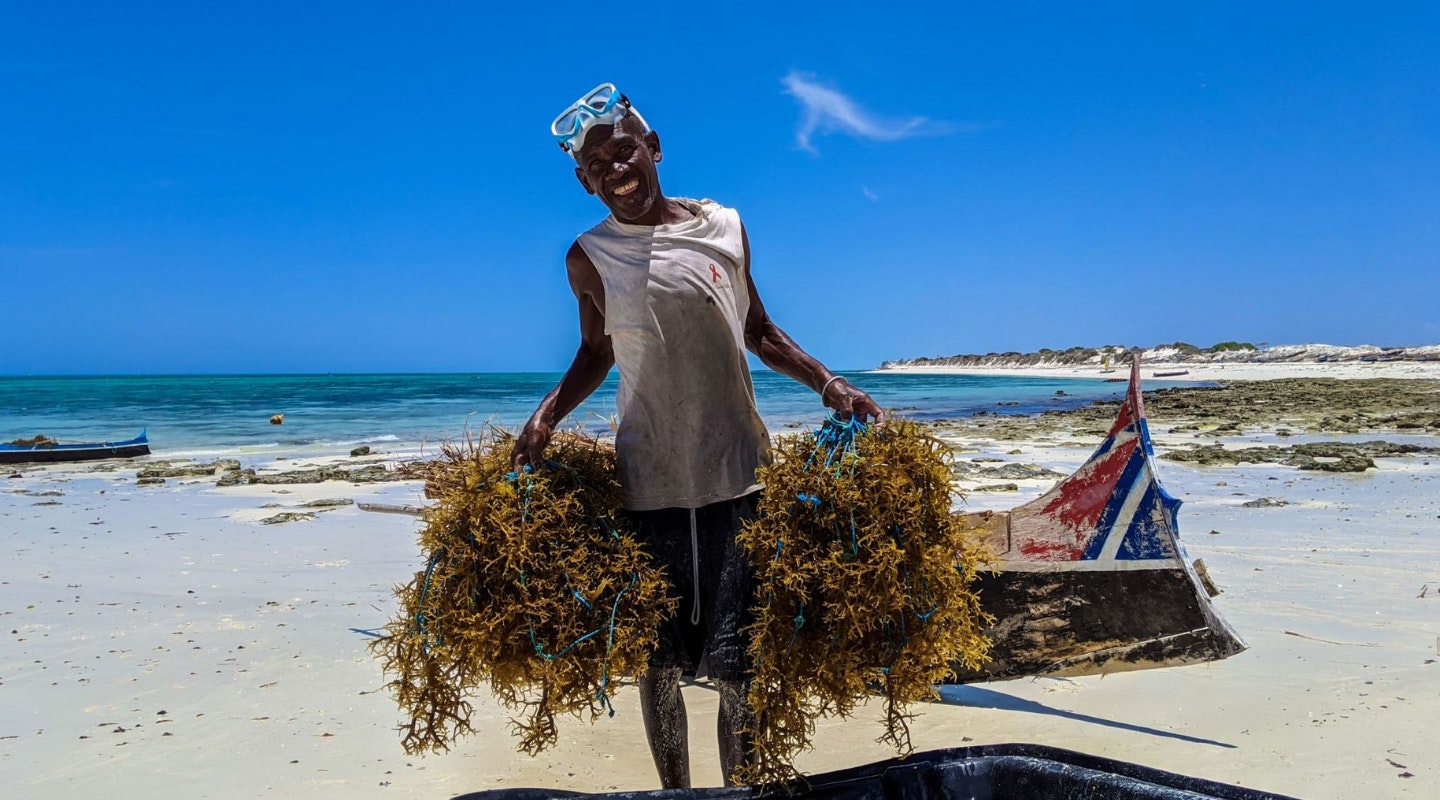
Madagascar is one of the most biodiverse islands in the world but has lost 90% of its natural ecosystems. The drop in productivity of marine ecosystems is directly affecting half a million people, making sustainable resource management indisputably urgent. Madagascar’s government is on board: the President has agreed to triple marine protected areas nationally with a focus on Locally Managed Marine Areas (LMMAs), of which communities along the entire coastline are already seeing the benefits. This is an opportune moment to leverage the wave of momentum and speed up a just transition.
Vatosoa Rakotondrazafy will implement the Blue Agora of Madagascar through the NGO, INDRI. This new programme will foster a productive national dialogue between government, private sector, NGOs, civil society, scientists and donors. Vatosoa will also empower 60 LMMA leaders, 20 young fishing community advocates and 28 fisherwomen to negotiate for better rights, access and pay.
Together, stakeholders will address critical unresolved issues such as the creation of exclusive fishing zones for small-scale fishers, sustainable wildlife management, the fairness of international fishing agreements and the adequacy of financial support. They will form a shared, holistic, and community-centred vision for a future blue economy in Madagascar.
Sean Privett (2001 Whitley Award)
£70,000 over two years
Fine Flowers: Nurturing the Green Economy within South Africa’s Walker Bay Fynbos Conservancy

Succulents, spiky reeds, orchids, shrubs and flamboyant lilies: the Cape Floral Kingdom on South Africa’s southwestern tip is home to the highest concentration of plant species on the planet. Blanketing the mountainous, coastal landscape, fynbos vegetation encompasses over 9,000 species, 70% of which grow nowhere else on earth. These plants are crucial to the water cycle; where they have been replaced by thirsty invasive trees, rainwater released to Cape Town’s reservoirs has reduced by over 60%. As well as humans, fynbos support animals including the endemic orange-breasted sunbird, baboon, jackal, geometric tortoise and Critically Endangered Table Mountain ghost frog.
However, socio-economic realities paint a less pretty picture. COVID-19 has caused unemployment to rocket to 40% in communities bordering the Walker Bay Fynbos Conservancy, while conservation funding, generated by ecotourism, has collapsed. The resultant rise in illegal flower harvesting, logging, and poaching is compounded by ongoing waves of invasive plant species.
Sean Privett and the Grootbos Green Futures Foundation will address the root cause of threats to fynbos by creating green income opportunities for local people. They will welcome 20 new people – at least 16 of them women – to the conservation sector, support six eco-entrepreneurship grants, upskill 20 existing employees, and mentor 20 community members. By building on his successful track record of engaging landowners in conservation, Sean will also ensure that conservationists can access private properties home to crucial areas of fynbos, across the biome.
Muhammad Ali Nawaz (2016 Whitley Award)
£50,200 over two years
Landscape-Level Support for Snow Leopards and People in Pakistan

Gilgit-Baltistan is at the intersect of four globally important mountain ranges – KaraKorum, Pamir, Hindukush and Himalaya – and at the heart of the snow leopard’s range, which extends across 12 countries. Muhammad Ali Nawaz and the Snow Leopard Foundation developed Pakistan’s first landscape-level strategy for snow leopard conservation with his 2016 Whitley Award. In consultation with communities, civil society and government, this new project will achieve the same for the Hindukush landscape, covering 13,888 km² across six valleys in Gilgit-Baltistan.
Snow leopards are under severe threat from habitat degradation, and the subsequent decline of natural prey leads to increased livestock predation. Remote herding communities lack economic safety nets to protect them against losses, so Ali is scaling up successful animal husbandry and vaccination programmes that improve livelihoods and reduce the likelihood of snow leopards being killed in retaliation.
Ali will also monitor threatened species, including snow leopard prey, across 7,750 km² by improving the capacity of wildlife rangers and introducing Spatial Monitoring and Reporting Tool (SMART) technology. This will ensure that landscape-level management can balance core areas, buffer zones, and corridors for wildlife with ecosystem services and livelihoods for people.
Joanna Alfaro Shigueto (2012 Whitley Award)
£40,000 over one year
Netting Together Fishing Communities to Conserve the Eastern Pacific Leatherback Sea Turtle in Peru

The eastern Pacific leatherback sea turtle is Critically Endangered: only 250 females nest each year. A keystone species, they feed on predators of juvenile fish and are therefore vital to maintaining the fish stocks relied on by coastal communities of Peru.
However, their coexistence with fishers is threatened by bycatch mortality. Joanna will scale up her successful mitigation strategy in San José – a village home to the nation’s second largest fleet of small-scale fishers. Joanna’s training has led to an increase in the number of live turtles released by fishers after being accidentally captured, and her new project will extend these efforts to a further five northern ports. Joanna and her NGO, ProDelphinus, aim to train 80% of people in safe handling and release techniques, which will equip 398 vessels with the skills to help turtles survive, after which she will tag and track these magnificent, imperilled reptiles.
Anjali Watson (2018 Whitley Award)
£70,000 over two years
Expanding Leopard Forest Corridors through Sri Lanka
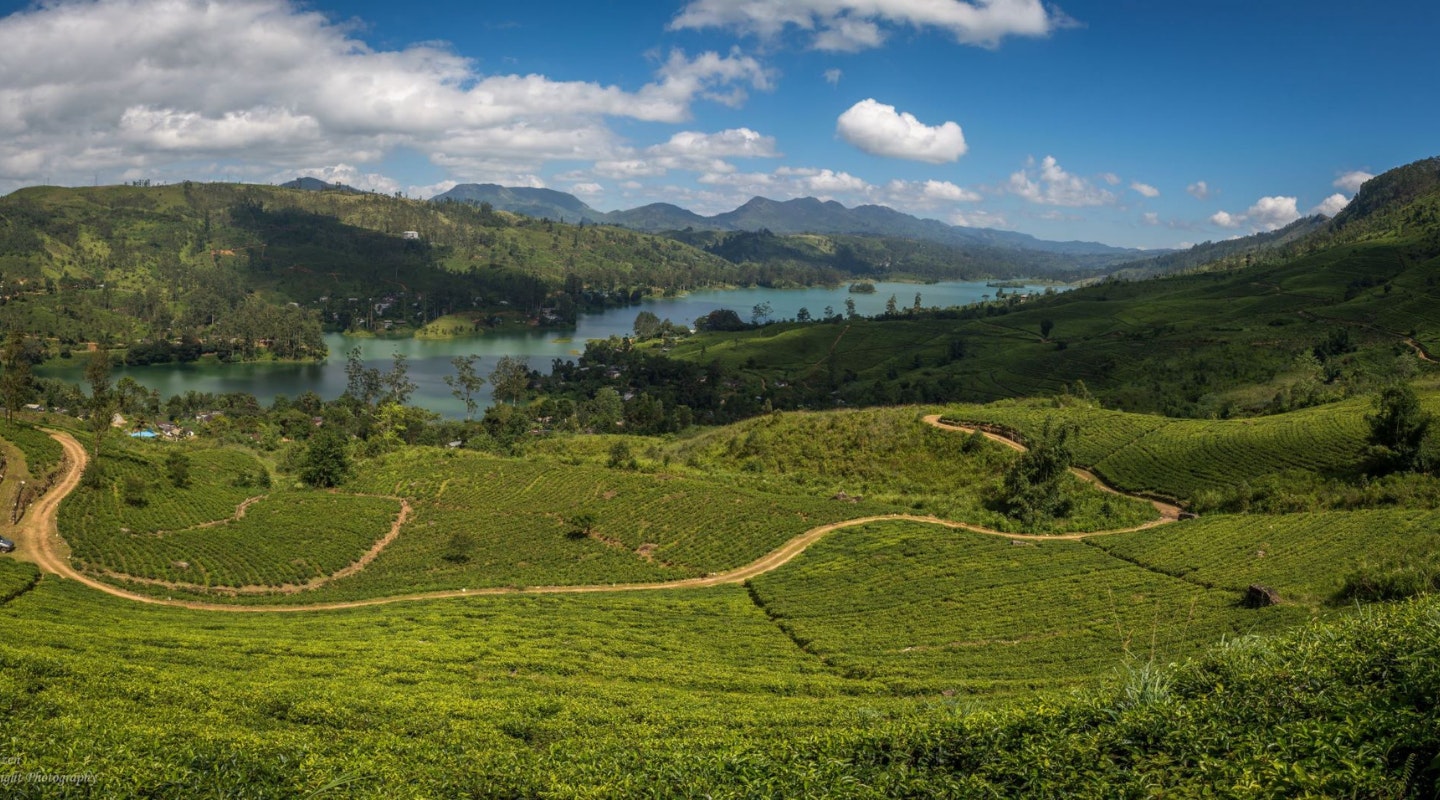
Sri Lanka’s Central Highlands are a UNESCO World Heritage Site and considered a ‘super biodiversity hotspot’ due to their high level of biodiversity and endemic species, including the Sri Lankan leopard. However, this landscape is already highly fragmented due to extensive agricultural activity and rapid development. With a high human population and dwindling forests, species are becoming increasingly threatened as humans come in close contact with wildlife. Snaring of leopards in this area is on the rise, a trend which has been exacerbated by the pandemic. Furthermore, a new government legislation seeks to open up over 700,000 ha of state forest for development, a move which will further fragment this important landscape.
Anjali, and her team at The Wilderness and Wildlife Conservation Trust, will build on their previous success in establishing the 18 km Peak Ridge Forest Corridor (PRFC) conservation area and apply the model to two new ridges to boost landscape connectivity and state protection. Using the Sri Lankan leopard as an umbrella species, Anjali will conduct research to determine the number of leopards using the ridges, tracking their movements to refine corridor boundaries in consultation with landowners. She will expand her existing habitat restoration work along the PRFC, reforesting up to 100 hectares with trees grown in forest plant nurseries. Lastly, she will use a combination of community awareness raising and snare removal patrols to eliminate snaring of leopards in the area.
Anjali’s project will considerably improve the protection and connectivity of remaining land available for wildlife in this ecologically important yet threatened highland habitat. Crucially, her work also conserves vital watershed forests which protect the landscape – and the many human communities within – from landslides, floods and drought.
Ekwoge Abwe (2013 Whitley Award)
£70,000 over two years
Growing Support to Secure a Fair Future for Cameroon’s Ebo Forest
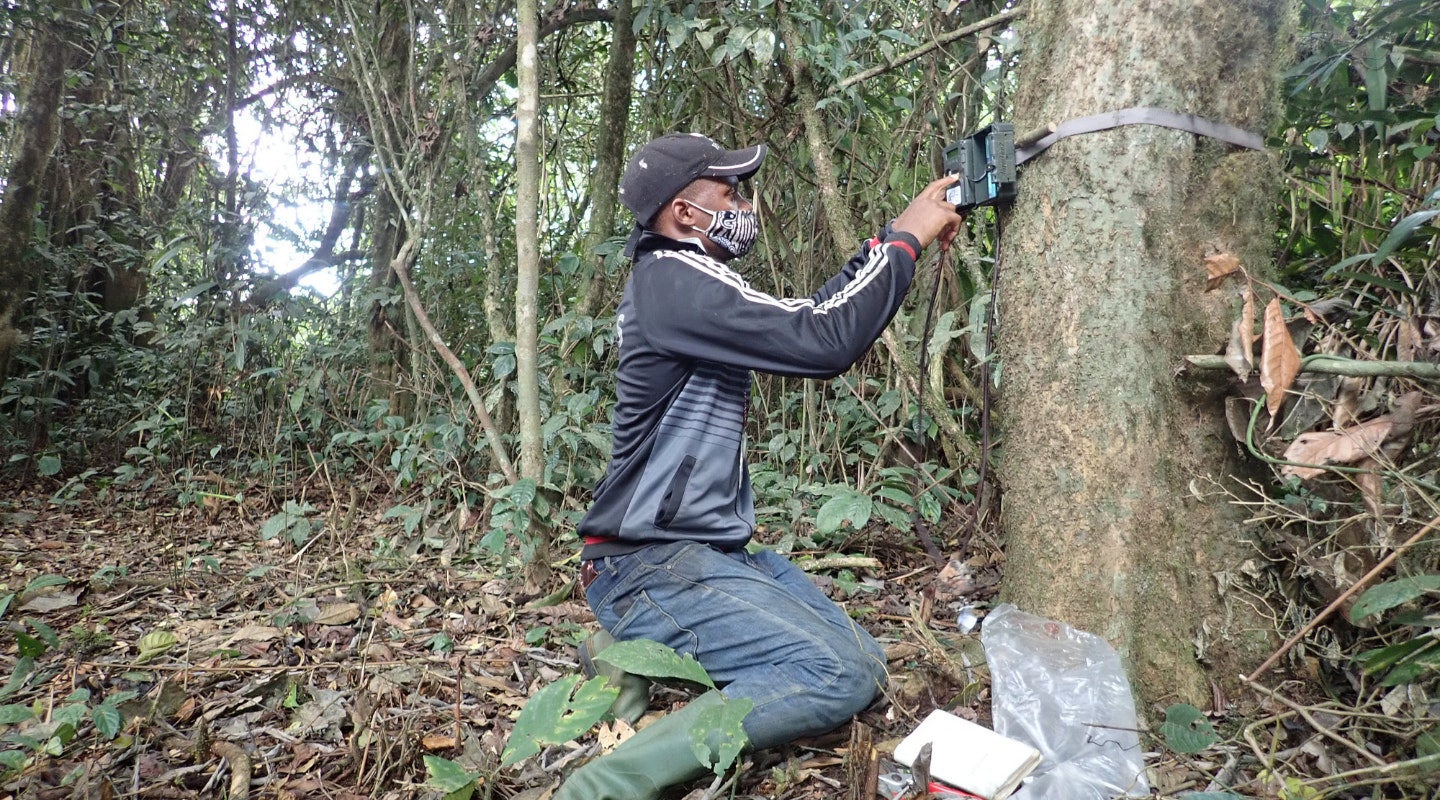
Ebo Forest is the most important tract of rainforest in the Gulf of Guinea biodiversity hotspot. Sequestering 35 million tonnes of carbon across 1,500km2, it is home to a population of gorillas so new to science that they may come to be classified as the world’s fifth subspecies. The ecosystem also boasts over 300 types of bird, forest elephants, foot-long goliath frogs, one of two remaining populations of the Critically Endangered Preuss’s Red Colobus monkey as well as the only chimpanzees to use tools in two ways – to crack nuts and fish for termites. Ebo Forest is also Cameroon’s most important botanical research site with 30 new and mostly endemic plant species discovered in recent years.
This globally important landscape was saved from government approved logging in 2020, by a coalition including Ekwoge Abwe, NGOs and 40 villages surrounding the forest whose ancestry and livelihoods are entwined with it. Ekwoge will now continue this vital contribution to the land-use planning process, empowering local people to work with government and make informed decisions about the future of the forest.
On the ground, Ekwoge and his NGO, the Ebo Forest Research Project, will increase pride in the communities sharing the habitat with the local, tool-wielding chimpanzee population by training Chimpanzee Guardian Club members in behavioural data collection to better understand these great apes. He will also reduce reliance on forest resources by establishing a cocoa farmers’ cooperative in 8 villages, providing better access to farming tools, cocoa beans, and financial services. Finally, Ekwoge will broaden awareness of environmental issues through monthly TV reports, growing grassroots support for long-term landscape conservation.
José Sarasola (2019 Whitley Award)
£70,000 over two years
Ensuring Chaco Eagle Conservation Takes Flight in Argentina
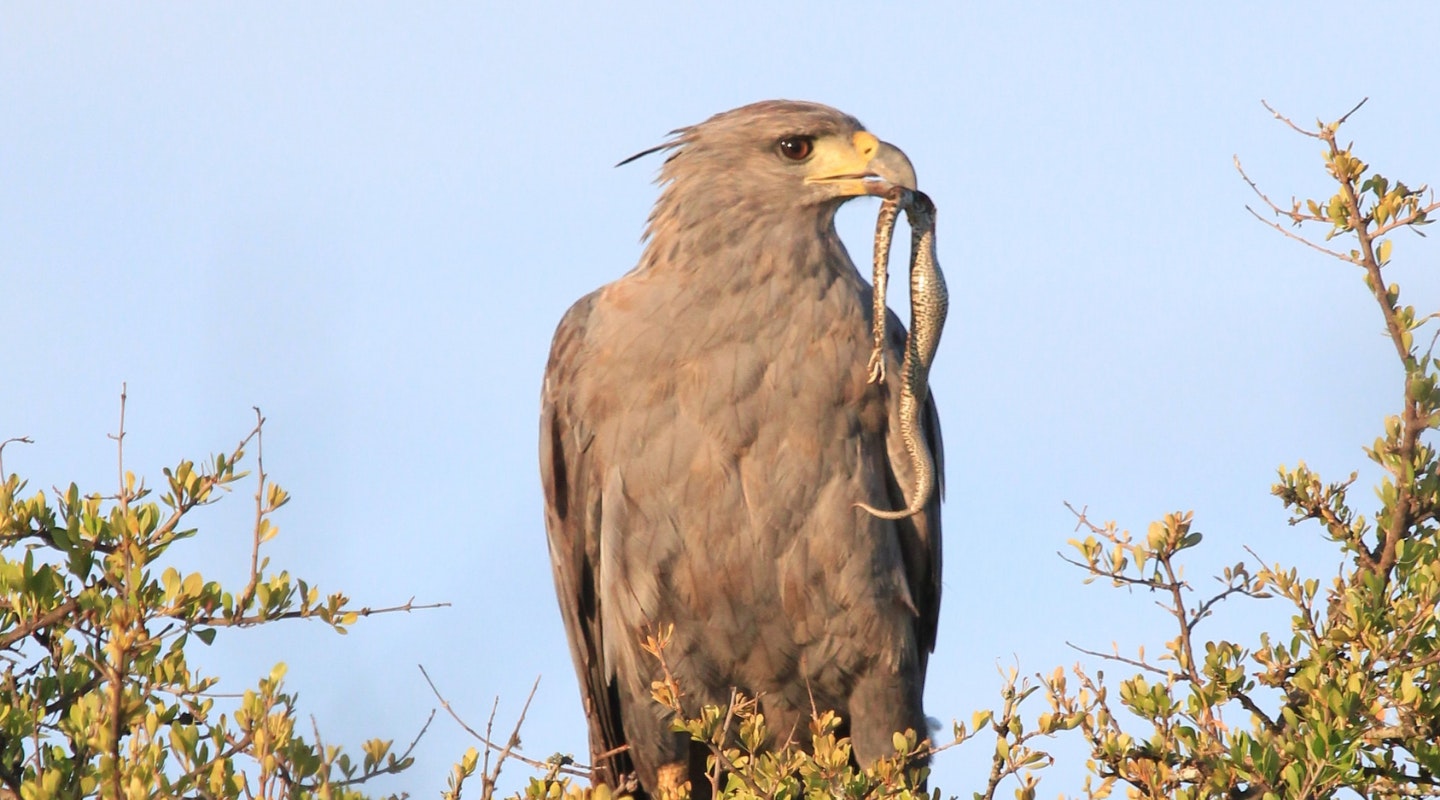
South America’s semi-arid biomes are among the most endangered ecosystems in the world. These fragile environments harbour extraordinary species that have adapted to extreme conditions. The largest avian predator, and therefore key to maintaining balance, is the Critically Endangered Chaco eagle. Known locally as the ‘weeping eagle’ because of its forlorn call, fewer than 1,000 mature adults are left. The species’ main threats are all anthropogenic, as agriculture expands into the heart of their habitat: an already challenging environment compounded by human obstacles.
With his 2019 Whitley Award, José Sarasola and NGO, CECARA, pioneered simple solutions that are having a big impact. Now they will expand efforts from the Mendoza to the Sante Fe province. Building on the relationships he has established with landowners, private sector and local authorities, José will retrofit more powerlines to stop avian electrocution. Plus, he will install a further 250 rescue ramps in sheer-sided water storage tanks to prevent wildlife from drowning. He will also work with local people to locate and monitor Chaco eagle pairs during the breeding season, then satellite-tag juvenile birds to gather information about their range that can inform future conservation action.
Eugene Simonov (2013 Whitley Award)
£70,000 over two years
Safeguarding Siberia’s Waterways

In Russia and Mongolia, hydropower forms a key part of national renewable energy strategies, with dams often financed by international institutions. However, largescale damming of lakes and rivers is causing ecosystem degradation and manipulating water fluctuations by artificially raising or lowering water levels. Doing so threatens biodiversity, interrupting wildlife migration pathways, eroding the shoreline and damaging wetlands and peatlands beyond transnational borders, which intensifies greenhouse gas emissions. This conflict between ‘climate action’ and nature conservation is rapidly unfolding in two World Heritage Sites in Russia and Mongolia: the 0.9 million ha Landscapes of Dauria, and Lake Baikal, the world’s largest and deepest freshwater lake, home to up to 4,000 species, with many found nowhere else on earth.
2013 Whitley Award winner Eugene Simonov, together with 2010 Whitley Award winner Vadim Kirilyuk, will use Continuation Funding to protect these irreplaceable sites. Through the NGO Rivers Without Boundaries, they will steer governments, companies and financial institutions towards nature-friendly climate action that takes the environment into account. They will make stakeholders aware of the climate-related risks of dam building and develop evidence-based safeguards to reduce harm to biodiversity and coastal communities. Environmental impact assessments and research will be conducted on water infrastructure construction to strengthen their case, and Eugene will raise awareness of their cause through public campaigns and advocacy, working at both the grassroots and political level. With Mongolia’s Blue Horse programme planning 33 largescale dams on natural rivers across the country, Eugene and Vadim’s work in Lake Baikal and Landscapes of Dauria will form the blueprint to tackle further damming projects and convince governments and international finance institutions to support nature-friendly alternatives.
Fernando Trujillo (2007 Whitley Award)
£70,000 over two years
River Dolphins: Scaling up the Search

Fernando and his NGO Omacha promote transboundary conservation of freshwater habitats and their wildlife using pink river dolphins as a flagship in the Amazon and Orinoco basins. Over the past three decades, their work has led to big gains for river dolphins, including the designation of Ramsar sites and new sustainable fishing agreements. However, further action is needed: dolphin numbers are much lower in the Orinoco compared to the Amazon, and the region faces an onslaught of threats, including mercury pollution from mining, deforestation, largescale fires and water stress, with the area being one of the most vulnerable to climate change in South America.
With Continuation Funding, Fernando will gather data on river dolphin abundance and population trends in the Orinoco River and tributaries in Colombia and Venezuela. He will also expand work to the Rupunini River in Guyana, where no studies currently exist on the species and so represents a missing piece of the puzzle. The team will monitor mercury contamination and establish areas of climatic vulnerability in the Orinoco basin, with data laying the groundwork for conservation action. Key wetlands will be restored in the Orinoco and a network of local stakeholders will be set up to prevent and control fires, which consume approx.. 200,000 ha of forest a year. Lastly, Fernando will train community members to rescue dolphins in rivers that have become cut off as a result of water stress, leaving these animals stranded.
This project will involve collaboration with 2019 Gold Award winner Jon Paul Rodriguez in Venezuela, and builds on Fernando’s past WFN-funded work to secure a future for river dolphins across South America.
Vivek Menon (2001 Whitley Award)
£70,000 over two years
Rite of Passage for Elephants Through Three Indian States

India is home to the world’s largest population of Asian elephants. Yet habitat loss and fragmentation are bringing herds into more frequent contact with humans, creating conflict that can have fatal consequences on both sides.
Since winning a 2001 Whitley Award Vivek Menon has put wildlife corridors firmly on the map, which facilitate the Asian elephant’s migratory mode of survival. He has convened grassroots and civil society groups to monitor their safe passage, through a nationwide network of Green Corridor Champions. In 2020, India’s Supreme Court ratified a state government decision to earmark the Sigur plateau as an elephant corridor, using Vivek’s evidence of the benefits to both wildlife and people. Recently elected as an IUCN Councillor, Vivek is perfectly placed to expand these efforts nationally as well as bringing international attention to the cause.
With Continuation Funding, Vivek and the Wildlife Trust of India will establish parliamentary support groups for wildlife conservation across three new states, upholding Asian elephants as a flagship species. In doing so, they will influence policy to ensure linear infrastructure such as railways takes elephants into account. Finally, Vivek will bring together a network of responsible media groups who can help broaden and sustain the conservation message, providing elephants with a true rite of passage across India.
Olivier Nsengimana (2018 Whitley Award)
£70,000 over two years
Cross-boundary Collaboration to Conserve Grey Crowned Cranes

Grey Crowned Cranes are every bit as majestic as their name suggests, with a striking spray of golden feathers festooning their heads. Unfortunately, these stylish crowns also put them at risk from the illegal wildlife trade, while their wetland habitat is having the plug pulled at pace. In Rwanda, which forms a watershed between Africa’s two major rivers, the Nile and the Congo, extreme poverty is forcing people and wildlife to compete for the same limited resources; Grey Crowned Cranes have suffered a drastic decline.
Since winning a 2018 Whitley Award, Olivier Nsengimana and his NGO, RWCA, have released all known cranes from captivity into the wild. Through wetlands restoration, more ranger patrols and a 500% increase in green jobs for local people, they have succeeded in almost doubling the Grey Crowned Crane population from 459 to 881 between 2018 and 2020.
With Continuation Funding, Olivier will follow the birds’ migratory route and expand his work across national borders. He will collect data on Grey Crowned Cranes from neighboring Uganda and Tanzania, partnering with fellow Whitley Award alumni Jimmy Muheebwa and Kerryn Morrison. By training 100 Community Conservationists across countries, Olivier’s holistic approach promises a better future for both birds and people, ensuring improved livelihoods and freshwater security.


